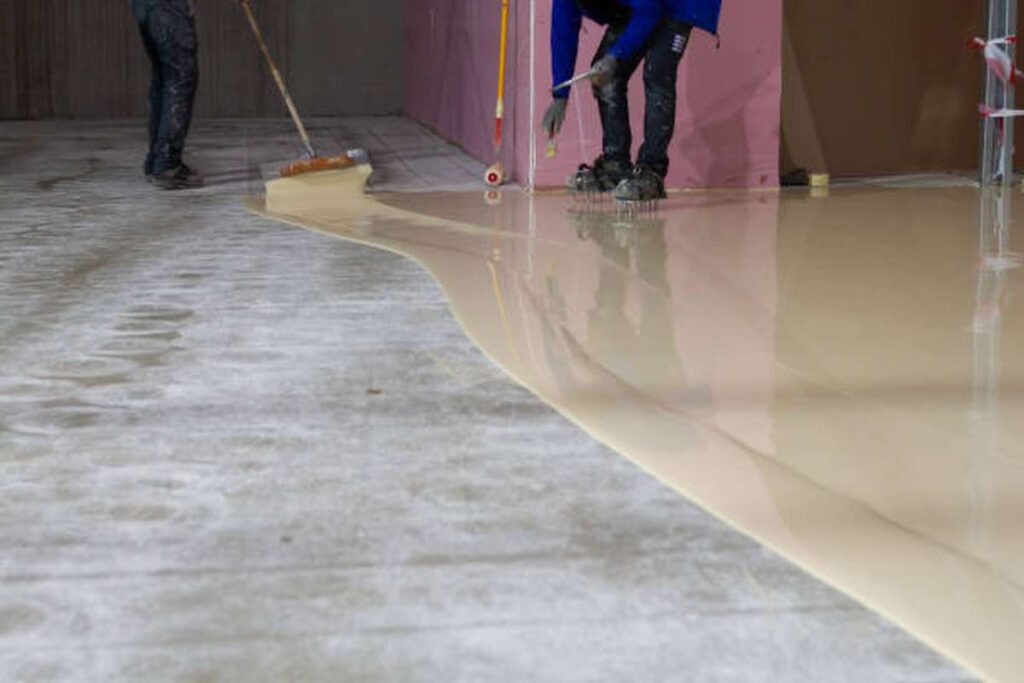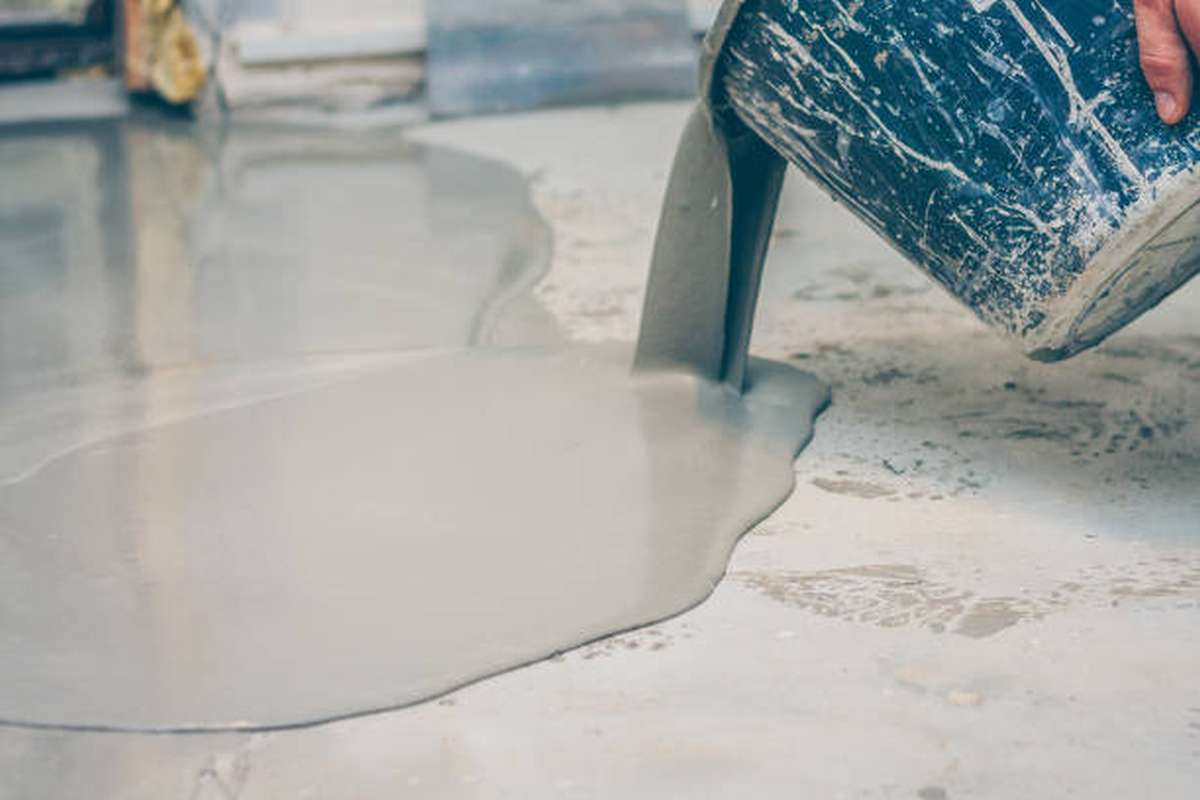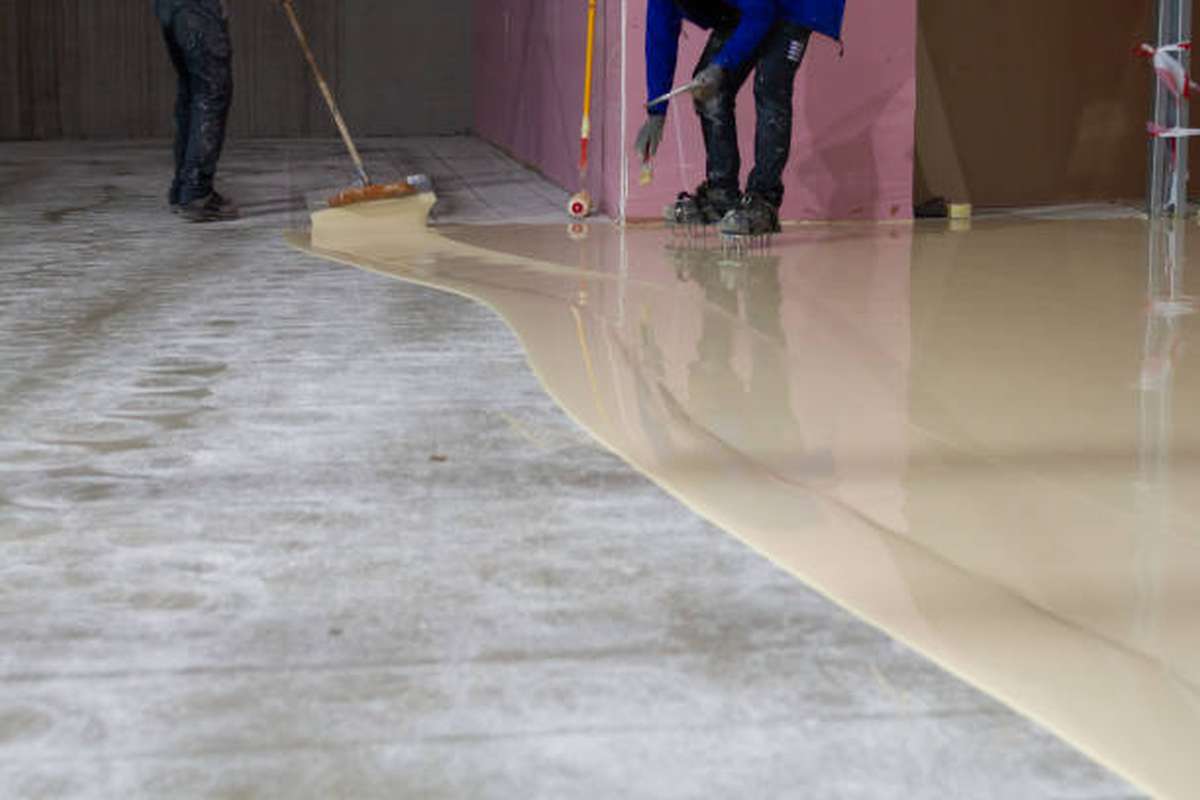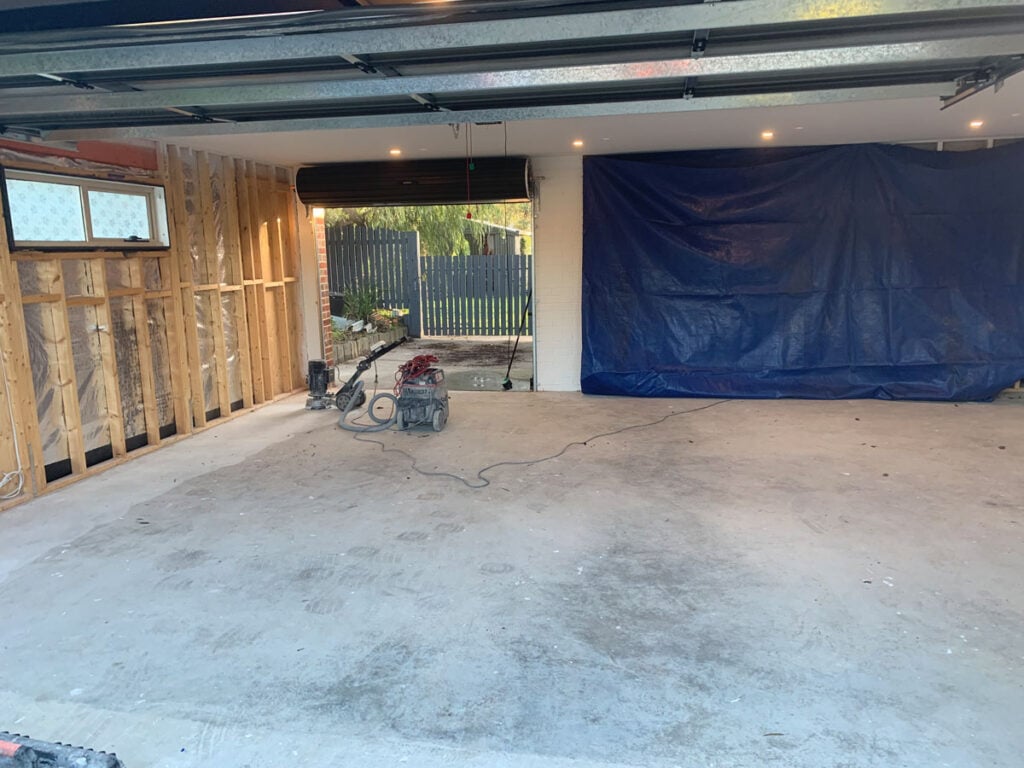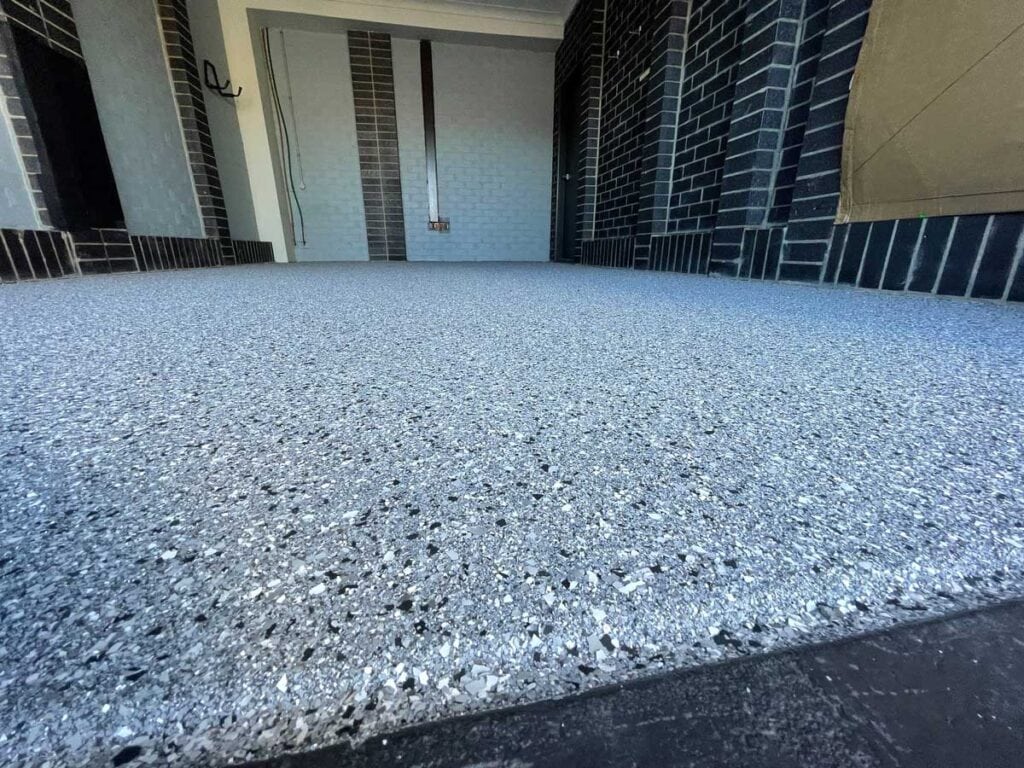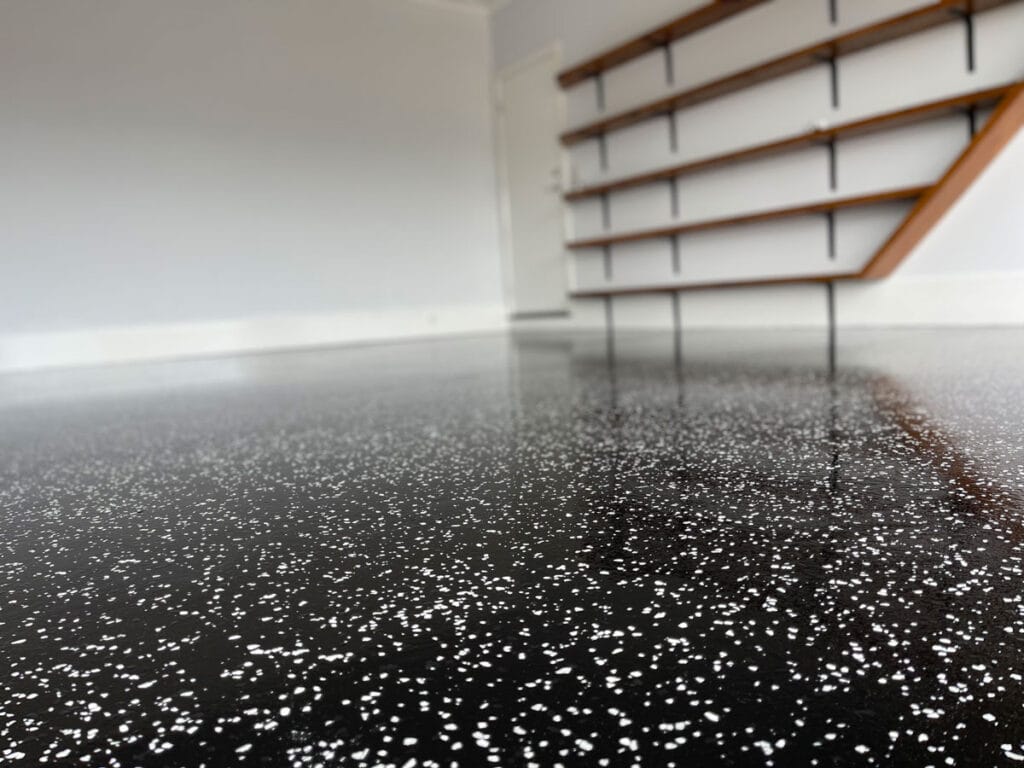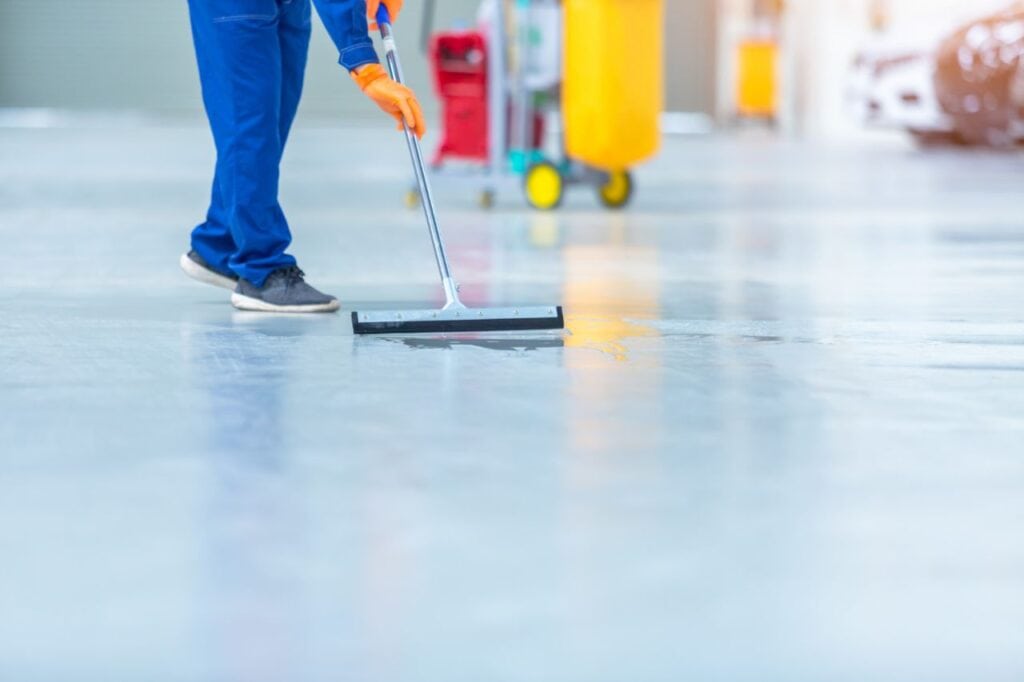Epoxy coatings for concrete flooring offer exceptional durability, making them an ideal choice for industrial environments. They can withstand damage from chemicals, can be customised with colour coatings for enhanced versatility and efficiency, and can be tailored to meet the specific requirements of the room's activities. Additionally, epoxy coatings have a highly reflective surface, which improves visibility in warehouses and factories.
Epoxy is renowned as one of the most versatile flooring solutions suitable for various commercial, industrial, educational, and healthcare facilities. It can be adapted to different conditions and needs, providing a tailored flooring solution.
Applying epoxy coatings is straightforward and offers reliable protection for the designated purpose. However, selecting the appropriate type of epoxy for the specific job is crucial. As time passes, concrete floors may exhibit signs of wear and tear, prompting many businesses to consider the application of protective coatings.
If you notice signs of aging on your concrete floor, it's worth considering various factors to understand the scope of your project. By doing so, you can ensure that the new coating provides long-lasting protection and maximises the lifespan of your concrete floor.
What to Understand Before Applying Epoxy Floor Coating
Before installing custom garage flooring, one must know certain factors to ensure preparedness and fully appreciate the outcomes. There are numerous compelling reasons to opt for this flooring option in your garage, which is suitable for residential and commercial applications.
One significant advantage is the ability to customise the colour of the flooring to harmonise with your existing decor, allowing for a cohesive and visually appealing aesthetic. Additionally, concerns about stains or spills can be alleviated, as this flooring choice is highly resistant to such issues, making maintenance and cleaning hassle-free.
Furthermore, the custom garage flooring is renowned for its exceptional durability, capable of withstanding the demands of heavy use and providing long-lasting performance. Whether it's the activities in your residential garage or the high traffic in a commercial setting, this flooring solution proves to be a reliable and robust surface.
Overall, by selecting custom garage flooring, you can achieve a surface that not only enhances the appearance of your space but also offers practical benefits, ensuring a durable and attractive flooring solution for your garage.
Epoxy's Chemical Bond Is What Gives It Its Strength
An epoxy coating consists of a polyepoxide resin and a curative. These components are combined just before application, triggering a chemical reaction that enables them to bond with each other and the floor surface.
As a result of this chemical bonding, the coating becomes stronger and more resilient than its components. Epoxy is highly durable and provides excellent protection to the flooring surface, preventing it from peeling or chipping—assuming that proper surface cleaning and preparation were conducted beforehand.
Colour Coating
Colour-coating epoxy floor coatings allow designating of distinct purposes for different areas of the work floor. This allows for the creation of "work zones," enabling better control over the movement of personnel within the site. This strategic use of colour can contribute to reducing workplace accidents and incidents, ultimately enhancing your company's safety record.
By implementing colour coatings, workers can be directed away from high-risk areas, mitigating potential hazards. Additionally, a continuous pathway can be created throughout the building, guiding visitors or clients and preventing them from getting lost within the site.
Using colour coatings in epoxy floor coatings not only enhances the visual appeal of the workplace but also contributes to improved safety measures and increased efficiency in managing traffic and movement within the facility.
What Is the Activity in the Area?
Determining whether a slip-resistant coating is necessary and assessing factors such as the use of forklifts or steel-wheeled carts, temperature conditions during use and non-use, and exposure to chemicals are crucial considerations in selecting the appropriate coating for your specific environment.
The temperature variations, both during regular operation and when the area is not in use, can have a significant impact on the performance and durability of the coating. The traffic level and heavy machinery like forklifts or steel-wheeled carts should also be considered to ensure the coating can withstand the potential stresses and impacts.
Moreover, the exposure to chemicals in your particular setting should be evaluated to choose a coating that offers suitable resistance and protection against corrosive substances.
By carefully assessing these factors—temperature conditions, traffic intensity, and chemical exposure—you can make an informed decision about the type of coating, its thickness, and the appropriate application method. This will enable you to select a coating that best accommodates the unique demands of your environment, ensuring optimal performance and longevity.
Is the Condition of Your Concrete Suitable for an Epoxy Floor Coating?
Despite the common misconception, it is important to recognise that not all concrete is the same. Just like following a recipe does not guarantee identical results in baking, various factors can influence the outcome of a concrete surface and, consequently, the final epoxy floor coating.
Numerous conditions come into play, including the temperature during the curing process and afterwards, moisture levels beneath the surface and in the air, the compressive strength measured in mpa, the composition of materials within the concrete, the skill and craftsmanship of the workers who poured it, and the level of movement experienced by the slab, among other factors.
The hardness of the concrete surface can impact its polishability, with surfaces below 23-25 mpa being more challenging to achieve the desired result. However, if you desire a polished finish, rest assured that alternative options are always available to meet your needs.
Understanding the complexity and variability of concrete conditions allows for informed decisions when selecting and applying epoxy floor coatings, ensuring that the desired outcome is achieved while considering the specific characteristics and limitations of the concrete surface.
It is important to assess the level of corrosion in your space.
- Smooth concrete: This type of concrete does not display visible aggregate and may have small cracks.
- Small aggregate: Some rock is exposed on the concrete surface in this case.
- Large aggregate: Concrete with large aggregate exhibits the presence of large rocks that are exposed on the surface.
When Is the Area Available for Downtime?
Allocate sufficient time for surface preparations, the installation of the coating, and the curing process. Planning the installation at a time that allows for the longest curing period possible is advisable. The extended curing time results in a stronger and more durable coating.
Consult with your installer to determine the most suitable timing for the installation. Coatings can be applied during weekdays if the space can be closed during that period. Alternatively, installations can be scheduled during planned shutdowns, weekends, or even holidays to accommodate the curing process effectively.
Is the Concrete Slab Level With the Rest of the Flooring?
In certain situations, there may be a noticeable height difference between the concrete slab and the adjacent rooms or areas, with a variance of 10mm or more. This can occur due to various reasons, such as removing old flooring, intentional adjustments for drainage purposes in wet areas, or differences in building standards from older properties.
To address this issue and ensure a level floor throughout, floor levelling or screeding can be employed. This involves adding a levelling material to raise the floor and bring it to the same level as the surrounding areas. It is important to note that floor levelling or screeding will incur additional costs, so it is recommended to communicate this requirement when obtaining quotes. This ensures transparency and allows for accurate budgeting from the outset of the flooring installation project.
Is the Floor Properly Draining?
It is crucial to address issues such as puddles or the need for new drains before resurfacing a floor. A skilled installer can adjust the floor's pitch or build it up to ensure proper drainage and eliminate potential slip and fall hazards. Often, installers initially see the floor in a dry condition, so it is essential to identify and mark these problematic areas for their attention.
When preparing for floor resurfacing, all these considerations hold significance. However, one of the most vital aspects to focus on is hiring a competent team to carry out the job. Adequate surface preparation, appropriate coating selection, and expert installation are key factors that guarantee a durable and long-lasting floor. Therefore, it is crucial to select an installer with years of experience and reliable references that demonstrate the quality of their work.
How Will You Get the Floor Ready for the Final Epoxy Floor Coating to Adhere to It Permanently?
Multiple methods are available for preparing your surface before applying a coating, but paying attention to surface preparation entirely is never an acceptable choice. It's important to note that only some forms of surface preparation are suitable for all situations. Occasionally, even the most high-quality option may be too harsh for your specific needs. At the same time, the gentlest and least expensive method may need to provide more aggressiveness to ensure the coating remains intact. This consideration becomes even more critical if you desire polished concrete as the outcome. Here are various options for floor preparation, listed from the mildest to the most robust:
- Concrete Sanding
- Concrete Grinding
- Shot-Blasting
How Should You Apply Epoxy Coatings?
Applying epoxy coatings correctly requires careful attention and adherence to the guidelines to ensure safety. Selecting the appropriate type of epoxy coating for your project is crucial. Applying epoxy coatings is a meticulous task that requires proper consideration. Before starting the application process, thoroughly read and understand the instructions. Additionally, ensure that you wear suitable protective clothing and apply the epoxy evenly to achieve optimal results. If you need clarification on the necessary steps, it is advisable to seek advice from a professional.
The most important step before applying the epoxy coating is adequately preparing the floor. This involves thoroughly cleaning the floor and addressing any cracks or damaged areas by filling or patching them. After repairing any damages, clean the entire area to remove dirt, grease, and oil spots. Ensuring that no dust or debris is left behind is essential, so thorough vacuuming is necessary. This meticulous preparation ensures an even application of the epoxy layer, resulting in less work and superior outcomes.
Curing Takes Time
Although epoxy may appear to harden quickly, it is important to note that its initial hardness does not indicate readiness. It requires a minimum of 18 to 24 hours before it can be safely walked upon. The complete curing process, where the epoxy reaches its final hardness and form, can take up to 30 days.
It is essential to consider the temperature during the curing process. Cooler temperatures can significantly slow down the curing time of epoxy. Applying epoxy in temperatures below 60 °F (15.6 °C) is generally not recommended as it prolongs the curing process excessively and may lead to complications.
Flexibility of Purpose
Epoxy flooring offers the flexibility to be customised according to different sites' specific needs and purposes. For instance, in automotive showrooms, epoxy flooring can be customised with decorative finishes to enhance its aesthetic appeal while providing the necessary durability to withstand the weight and pressure exerted by heavy vehicles.
On the other hand, in industrial kitchen and bathroom settings, epoxy flooring may require additional properties such as moisture and chemical resistance. This is crucial for protecting the underlying concrete and the structural integrity of the building from potential damage caused by water, chemicals, and other substances commonly found in these environments. The flooring can safeguard the facility while maintaining its functionality by selecting the appropriate epoxy coating.
What's Your Budget?
The cost of epoxy coatings is often a top concern for individuals seeking quotes. It is important to remember that the product's price reflects its performance and longevity in this industry. When considering epoxy coatings, it is crucial to exercise caution when encountering stock-standard prices per square meter. While such information may seem desirable, installing chemical-reactive flooring is complex, making it nearly impossible to have a universal, one-size-fits-all option.
Opting for an off-the-shelf solution may provide initial cost savings, but it may fail to deliver a customised coating system's long-term performance and durability. You should seek customised quotes tailored to your specific needs to achieve lasting results. These personalised quotes will provide a more accurate assessment of the requirements and offer a solution prioritising longevity and performance over short-term savings.
You Get What You Pay For
Lower-cost epoxies often have a lower solids content, typically around 30% to 40% by volume. This means that once the product dries, you are left with a thickness of 40% or less. On the other hand, professional-grade epoxies usually have a solids content of 90% to 100% by volume, resulting in a higher-quality and thicker final product.
Regarding labour costs, it is not advisable to skimp on hiring professionals. While a do-it-yourself approach may suit your home garage, the stakes regarding your business' floors are higher. Investing in an experienced crew to install your epoxy floor is worthwhile to avoid costly mistakes and ensure a visually appealing and properly installed final product.
Conclusion
Epoxy coatings for concrete floors are a great option since they are long-lasting, flexible, and easy to modify to fit the needs of the space's intended purpose. Additionally, the highly reflecting surface of epoxy coatings increases safety in industrial settings. To be well-prepared and satisfied with the results of installing custom garage flooring, it's important to be aware of a few things beforehand. A polyepoxide resin and a curative are what give an epoxy coating its durability and dependability. Epoxy floor coatings are long-lasting and reliable, shielding the floor from damage like peeling and chipping.
Colour-coating Epoxy floor coatings let you assign different functions to different sections of the factory floor, giving you more say over employee traffic patterns. Choosing the right coating requires thinking about factors like the temperature, the amount of foot traffic, and the presence of chemicals. There are types of concrete that are not appropriate for an epoxy floor coating, and you should know that. Temperature, moisture, compressive strength, material composition, worker skill and workmanship, and the slab's degree of movement are only few of the variables that might affect the final product of a concrete surface. Consider the corrosion in the area, schedule the installation for when the concrete will have the most time to cure, and check that the concrete is level with the rest of the floor.
Screeding or levelling the floor is one method of making sure the surface is uniformly flat. When resurfacing a floor, it is common practice to first add a levelling substance in order to bring the floor up to the same level as the surrounding areas. Before refinishing a floor, it's vital to fix problems like puddles or install new drains. Hiring a skilled crew with lots of expertise and good recommendations is crucial if you want your floor to last. There are a number of ways to get a floor ready for an epoxy coating.
Wearing safety gear and reading the directions thoroughly are necessities for proper epoxy coating application. Before putting an epoxy coating, it is crucial to clean the floor completely and repair any damage. It's crucial to think about the temperature during the curing process, which might take up to 30 days. Epoxy flooring's adaptability to a wide variety of settings is a key feature. Protecting the concrete and the building's structure from outside forces is why epoxy coatings are so important.
Be wary of relying too heavily on stock-standard square-meter rates. The solids content of professional-grade epoxies is often between 90% and 100% by volume, making for a higher quality and thicker end product. The cost of hiring a professional crew to lay the epoxy floor will be more than offset by the high quality of the finished product.
Content Summary
- Epoxy coatings for concrete flooring offer exceptional durability.
- They are ideal for industrial environments due to their chemical resistance.
- Epoxy coatings can be customised with colour coatings.
- The coatings can be tailored to meet specific requirements.
- Epoxy coatings have a highly reflective surface, improving visibility in warehouses and factories.
- Epoxy is versatile and suitable for commercial, industrial, educational, and healthcare facilities.
- It provides a tailored flooring solution for different conditions and needs.
- Epoxy coatings provide reliable protection for the designated purpose.
- Proper selection of epoxy type is crucial for long-lasting protection.
- Signs of aging on concrete floors prompt the application of protective coatings.
- Understanding various factors ensures a long lifespan for the concrete floor.
- Custom garage flooring offers customisable colours that harmonise with existing decor.
- It is highly resistant to stains and spills, making maintenance hassle-free.
- Custom garage flooring is exceptionally durable and withstands heavy use.
- It enhances the appearance and provides practical benefits for garages.
- Epoxy coating strength comes from its chemical bond.
- The bonding process makes the coating resilient and prevents peeling or chipping.
- Colour coatings on epoxy floors create distinct work zones for better control.
- Colour coatings improve safety measures and manage traffic within the facility.
- Slip-resistant coatings and exposure to chemicals are crucial considerations.
- Temperature conditions and heavy machinery impact coating performance.
- Assessing corrosion levels helps select a suitable coating for protection.
- Concrete conditions vary, requiring informed decisions for epoxy coatings.
- Floor levelling or screeding addresses height differences in the flooring.
- Proper drainage is essential for eliminating slip and fall hazards.
- Hiring a competent team is crucial for quality epoxy floor installation.
- Surface preparation is vital before applying the epoxy coating.
- Adequate curing time ensures a stronger and more durable coating.
- Epoxy flooring offers flexibility to customise for different purposes.
- Consider budget, quality, and performance for epoxy coating selection.
Frequently Asked Questions
Epoxy coatings are low-maintenance and require little, if any, repairs, which gives them an added boost in their long-term value.
When it comes to flooring, epoxy is the toughest! The chemical compounds create an impact-resistant floor perfect for handling shock, heat, heavy machinery, and more without worrying about cracks and wear and tear. The flooring is also durable enough to withstand chemical spills for use in chemical plants.
In terms of daily maintenance, epoxy floors are low-key. They don't need much, but a daily sweep and mop should be part of the cleaning routine. By removing the presence of any small particles, you'll keep the floor free of scratches and reduce wear and tear.
Epoxy flooring is long-lasting and highly durable. It is five times thicker than normal paint, is waterproof, and has excellent abrasion and chemical resistance, extending its life and durability.
Epoxy is also a bacteria-killing surface, which can help keep your toilets clean and healthy. Because of these benefits, epoxy is an excellent choice for the floor of a public restroom. Epoxy is the best option for a floor that can withstand the wear and tear of a public toilet.
